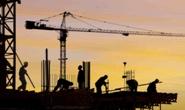Analysis

March 15, 2018
AGC: Tariffs to Inflate Construction Costs
Written by Sandy Williams
The Associated General Contractors of America warn that tariffs on aluminum and steel will drive construction costs up. The February report from AGC follows:
Construction costs escalated in February, driven by price increases for a wide range of building materials including steel and aluminum, according to an analysis by the Associated General Contractors of America of Labor Department data released today. Association officials warned that newly imposed tariffs on those metals will create steeper increases that will squeeze budgets for infrastructure, school districts and commercial projects.
“Price increases have accelerated for many construction materials in the last two years, with additional increases already announced, and others on the way as soon as tariffs on steel and aluminum take effect,” said AGC Chief Economist Ken Simonson. “Contractors will be forced to pass these cost increases along in bid prices, but that will mean fewer projects get built. And contractors that are already working on projects for which they have not bought some materials are at risk of absorbing large losses.”
The producer price index for inputs to construction industries—a measure of all goods and services used in construction projects including items consumed by contractors, such as diesel fuel—rose 0.6 percent in February alone and 4.4 percent over 12 months. The index increased by 4.2 percent in 2017 and just 0.9 percent in 2016, the economist noted.
“Many materials contributed to the latest round of increases,” Simonson observed. “Moreover, today’s report only reflects prices charged as of mid-February. Since then, producers of steel and concrete have implemented or announced substantial additional increases, and the huge tariffs the president has imposed will make steel, aluminum and many products that incorporate those metals even more expensive.”
From February 2016 to February 2017, the producer price index rose 11.6 percent for aluminum mill shapes, 4.8 percent for steel mill products and 10.0 percent for copper and brass mill shapes. Metal products that are used in construction include steel bars (rebar) to reinforce building and highway concrete; piles and beams (structural steel) in buildings; steel studs to support wallboard in houses and buildings; steel and copper pipe; and aluminum window frames, siding and architectural elements. Several other products that are important to construction also had large price increases over the past 12 months: diesel fuel, 38.5 percent; lumber and plywood, 13.2 percent; gypsum products, 8.0 percent; and plastic construction products, 4.9 percent.
Construction officials said the new tariffs will raise costs for firms, many of which are locked into fixed-price contracts with little ability to charge more for their services. They said funding the president’s infrastructure plans would be a better way to foster demand for domestic steel and aluminum without harming contractors.
“Tariffs may help a few producers, but they harm contractors and anyone with a limited budget for construction,” said Stephen E. Sandherr, the association’s chief executive officer. “The best way to help the U.S. steel and aluminum sector is to continue pushing measures like regulatory reform and new infrastructure funding that will boost demand for their products as the economy expands.”







